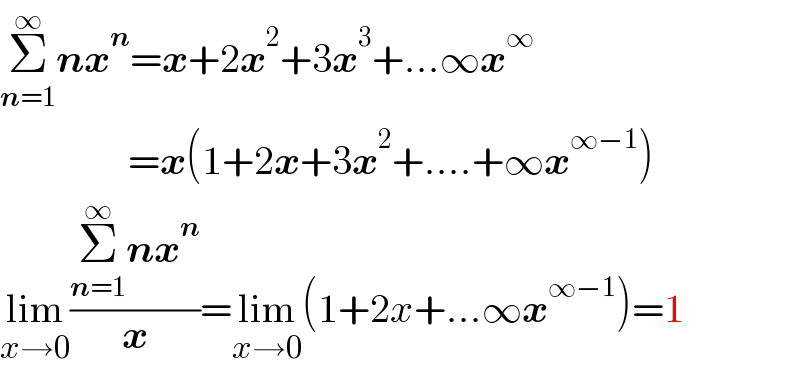
Question and Answers Forum
Question Number 183376 by TUN last updated on 25/Dec/22

Commented by CElcedricjunior last updated on 25/Dec/22

Answered by TheSupreme last updated on 25/Dec/22

Answered by Rasheed.Sindhi last updated on 25/Dec/22

| ||
Question and Answers Forum | ||
Question Number 183376 by TUN last updated on 25/Dec/22 | ||
 | ||
Commented by CElcedricjunior last updated on 25/Dec/22 | ||
 | ||
Answered by TheSupreme last updated on 25/Dec/22 | ||
 | ||
| ||
Answered by Rasheed.Sindhi last updated on 25/Dec/22 | ||
 | ||
| ||